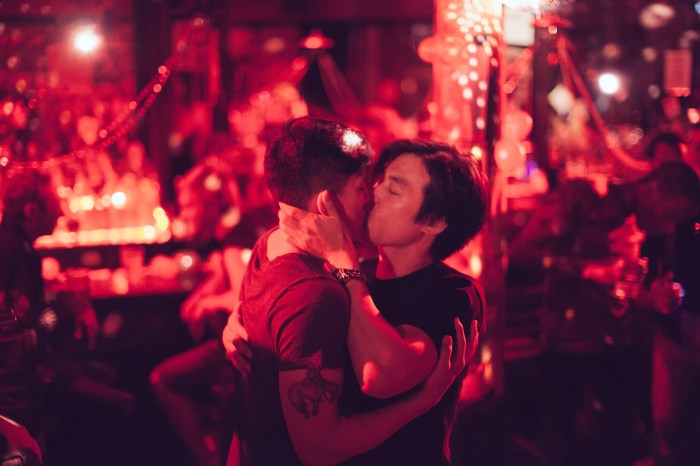Kirby Dick’s 1997 film “Sick: The Life and Death of Bob Flanagan, Supermasochist” is remembered, if at all, largely for the scene in which poet and performance artist Flanagan nails his penis to a board, set to the song “Hammer of Love.” It’s extremely difficult to watch, though in context, it’s justifiable — the film shows Flanagan using the controllable pain of masochism to handle the uncontrollable pain of terminal illness.
The filmmaker’s latest documentary, “The Invisible War,” deals with rape in the US military. While it’s not at all visually explicit, it contains moments that are nearly as unpleasant as the hammer scene in “Sick.” Here, Dick is fond of montage sequences that string together scenes of women basically saying the same thing about their experiences. These have a sledgehammer impact.
Earlier this year, the Weinstein Company turned “Bully” into 2012’s most commercially successful documentary. They were helped by the newsworthiness of the subject and the controversy over the MPAA’s initial refusal to give the film a PG-13 rating.
“The Invisible War” is unlikely to reach the same sizable audience. For one thing, it’s distributed by two companies I’d never previously heard of, rather than the Weinsteins, who are skilled Oscar campaigners. According to the statistics offered up by the film, military rape should be a topic of far more discussion in American society than it is. “Bully” and “The Invisible War” both seem designed as activism as much as filmmaking.
“The Invisible War” ends by telling the audience that the film was shown to Leon Panetta in April, and that he ended the system of having military commanders investigate rape charges. It goes on to ask spectators to “become part of the campaign to protect those who protect us.” Yet there’s no sense of triumph in that. The film concludes with a list of what each victim and his or her rapist are doing now. The fact that nearly all of the perpetrators walked away with no punishment steals the empowerment message’s thunder.
While Kirby Dick gets sole directorial credit for “The Invisible War,” it’s billed as “a film by Amy Ziering and Kirby Dick.” Ziering conducted all the interviews with female subjects. Both a male and female cinematographer are credited; I’m not sure whether the latter shot the interviews with female subjects as well. In any case, Dick is clearly sensitive to the effects of a male’s presence behind the camera and wanted to make the women interviewed in “The Invisible War” as comfortable as possible.
Still, “The Invisible War” avoids portraying rape survivors as mere victims. It demonstrates how the military justice system is stacked against them. Often, the person to whom they have to complain about sexual assault is a friend of the rapist. Sometimes, he’s the rapist himself. While it includes an interview with one woman who describes a period of homelessness and substance abuse, it doesn’t dwell on this hardship. The women it concentrates on are fighters. A long section of the film near the end depicts a group of women lobbying politicians. One of the women interviewed by Ziering is a lesbian, but “The Invisible War” doesn’t really discuss the impact of Don’t Ask, Don’t Tell — still in effect when the film was shot — on military rape.
Though the film never criticizes the military on matters other than its treatment of rape, it becomes an anti-recruitment film par excellence. In a scene at a restaurant, a woman tries to talk a waitress out of enlisting. A parade of interview subjects say that they wouldn’t want their daughters to join the military.
The only major flaw of “The Invisible War” is its lack of context. The film introduces statistics about rape in civilian life only to demonstrate how much worse the crime’s prevalence is in the military. However, prosecuting rape outside the military is no piece of cake, nor is victim-blaming exactly unknown among civilians. The film ridicules military anti-rape campaigns that tell men not to approach drunk women and women not to walk alone at night, but it was a Toronto cop who notoriously inspired the wave of “Slutwalk” protest marches there by telling women that if that they didn’t want to get raped, they shouldn’t dress like sluts. The problem may be worse in the military, but only by degrees. Nor does the film even mention the way rape and sexual degradation are often used as tools of war.
The film, however, does so much right that these lapses are pretty minor. “The Invisible War” is infuriating, but in a positive way.
THE INVISIBLE WAR | Directed by Kirby Dick |Cinedigm/ Docurama Films | Opens Jun. 22 | AMC Village 7 | 66 Third Ave. at 11th St. | amctheatres.com




































